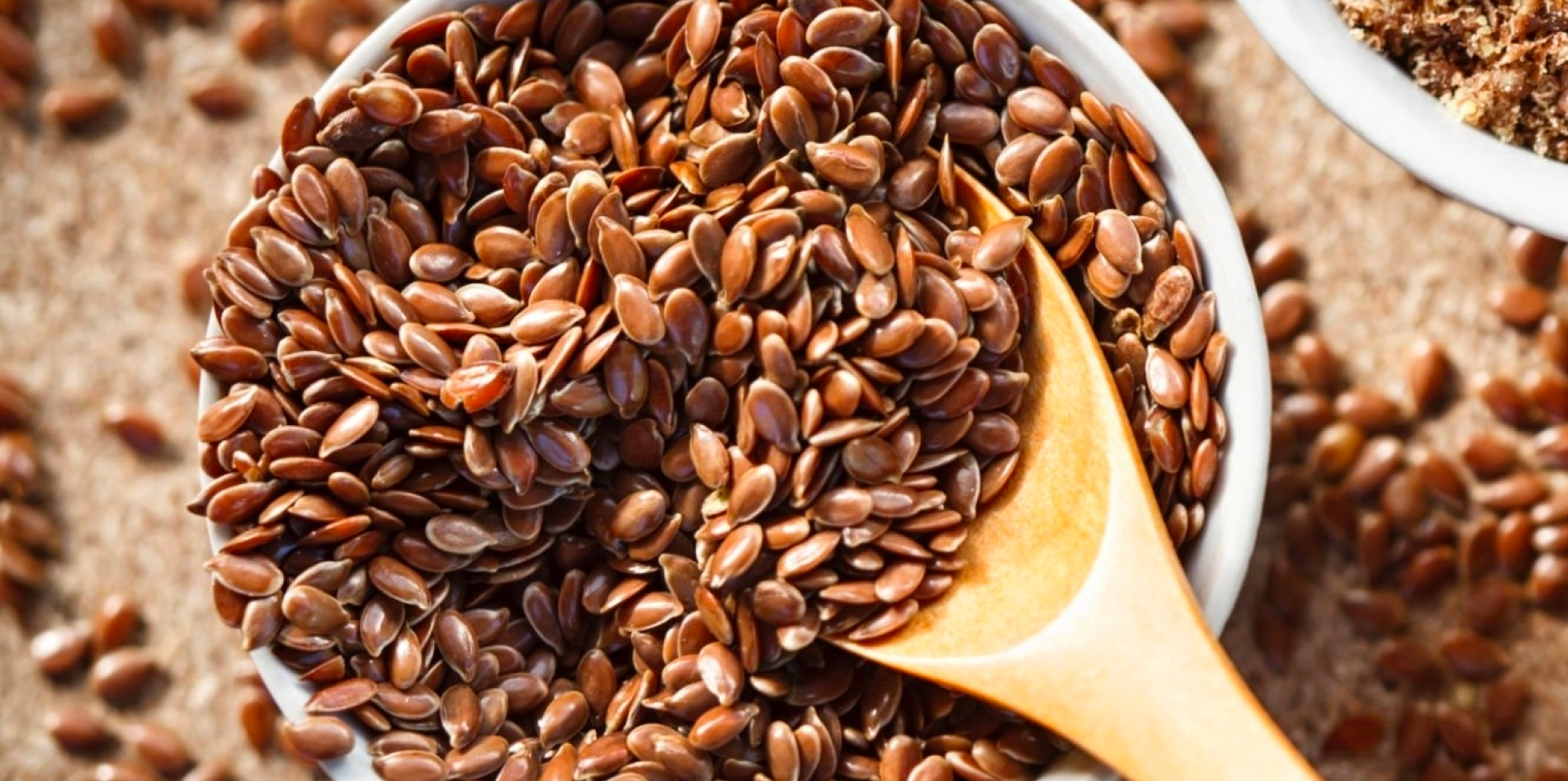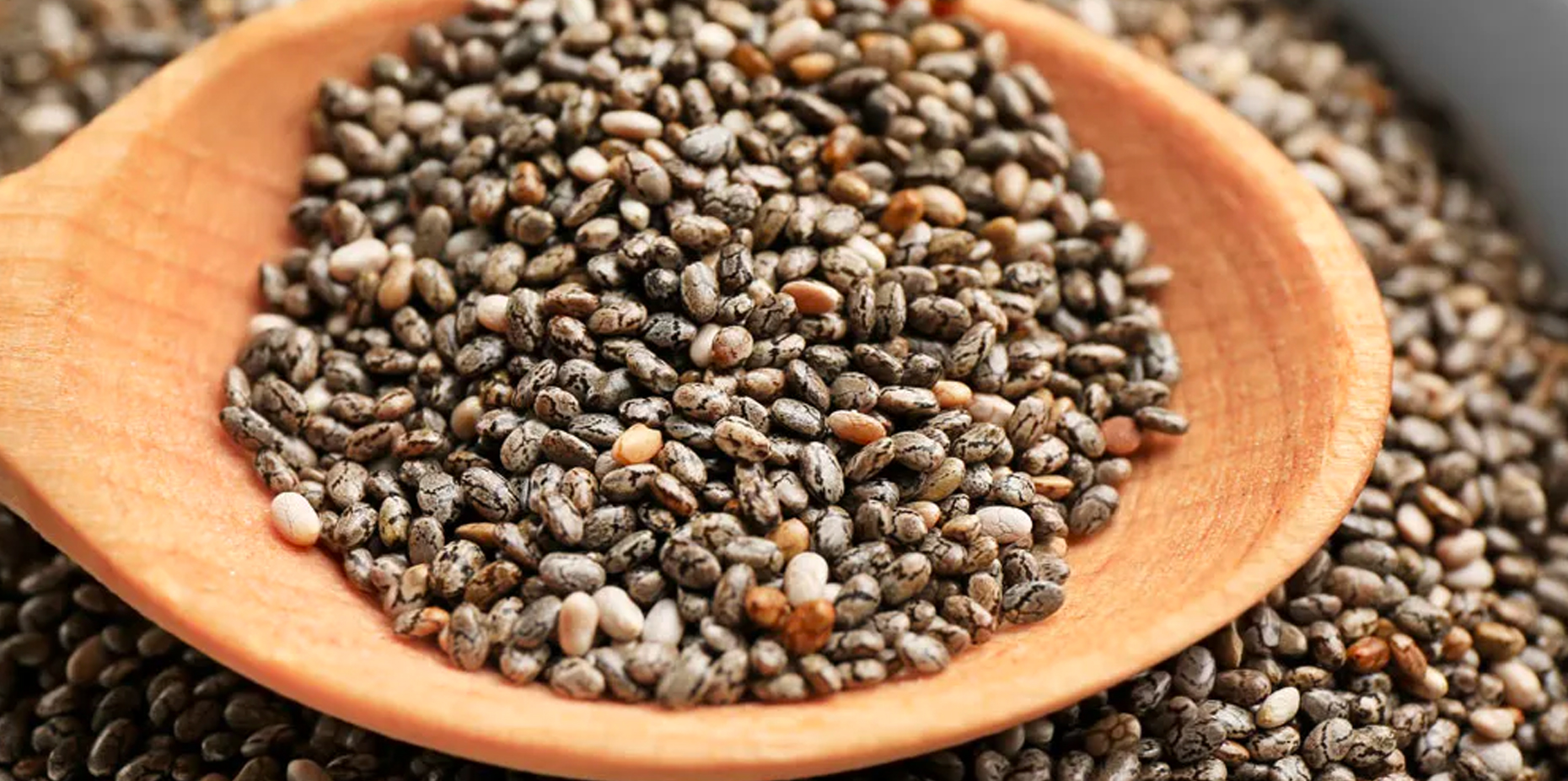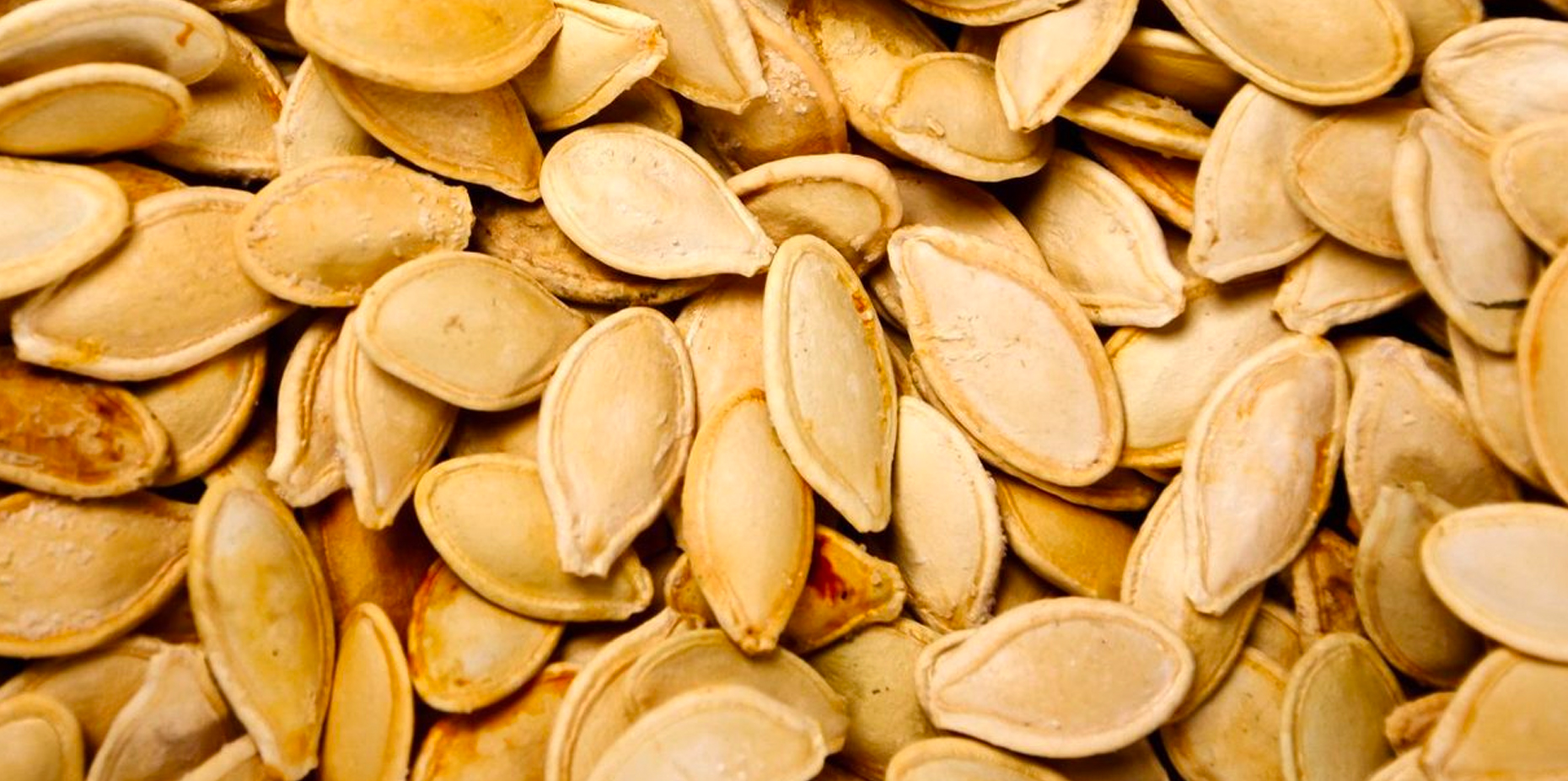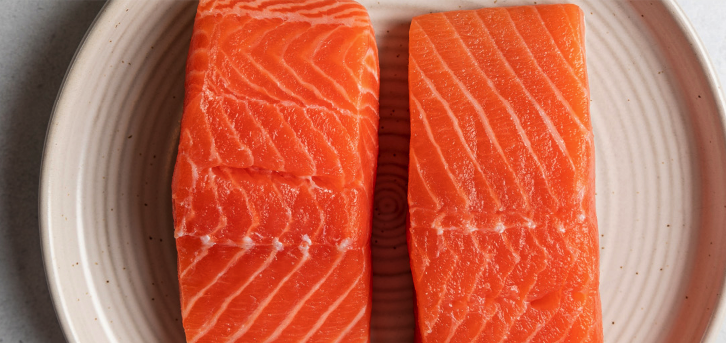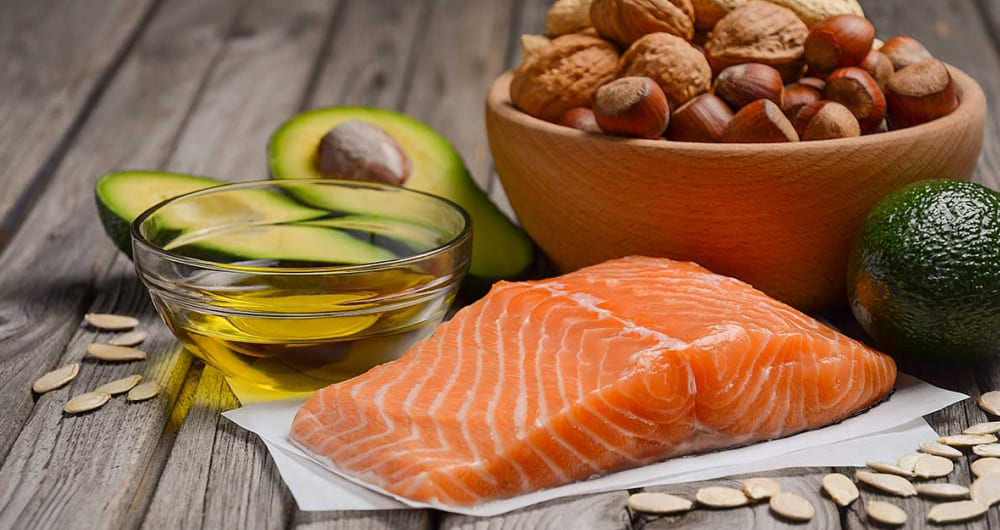Flaxseeds have been used by humans for thousands of years as a food source. But more recent research has shown that eating flaxseed regularly improves health in many ways.
The most common use of flaxseeds is as an ingredient in baked goods like muffins or bread. It also has a nutty flavor, making it an ideal choice for smoothies or shakes.
Table of Contents
Health Benefits of Eating Flaxseeds
Flaxseeds are rich in fiber, omega-3 fatty acids, and antioxidants (1). These tiny seeds are one of the most nutrient-dense foods on the planet. The best thing about flax seeds is that they can be consumed raw, roasted, or ground into flour.
1. High in omega-3 fatty acids
Flaxseeds are the seeds of a plant species that has been cultivated for centuries. They are useful in food, cosmetics, and medicine. Flaxseeds contain about 30% oil by weight, which has omega-3 fatty acids in the form of triglycerides (2).
First, let’s talk about what omega-3 fatty acids are. They are unsaturated fats that help keep our cell membranes flexible and healthy (3). They also play a role in brain function and development, heart health, skin health, mood, and more (4)!
Omega-3 fatty acids may improve cardiovascular health by lowering triglyceride levels in the blood, reducing blood pressure, and improving blood vessel flexibility (5).
Omega-3s also have an anti-inflammatory effect on the body (6). They can help reduce risk factors for heart disease such as high cholesterol and high blood pressure. The best way to get adequate amounts of omega-3s is by eating flaxseeds or fish oil at least twice per week.
Flaxseeds are rich in alpha-linolenic acid, an essential omega-3 fatty acid that the body can’t make. Alpha-linolenic acid is not as well studied as other omega-3 fats, such as EPA and DHA, but it may have similar benefits.
The main potential benefit of alpha-linolenic acid is its ability to lower blood levels of triglycerides which are molecules that carry fat in the blood. High levels of triglycerides can increased risk of heart disease, but studies aren’t conclusive on whether lowering them reduces the heart risk.
Summary:Flax seeds are a great source of omega-3 fatty acids, healthy fats that can decrease risk of diseases and promote brain and heart health.
2. Loaded with nutrients
Flaxseeds contain phytoestrogens which are compounds with antioxidant and anti-inflammatory properties (7). They also contain B vitamins and minerals like potassium, magnesium, iron, and zinc (8).
Flaxseeds are one of the best vegetarian sources of protein, containing about 25 percent protein by weight (9). A single tablespoon of flaxseed contains 2 grams of protein, 2 grams of dietary fiber, and 3 grams of fat which are mostly unsaturated fats (10). A few tablespoons a day can help you meet your daily requirements for omega-3 fatty acids and dietary fiber.
Flaxseeds also contain lignans, which may help reduce the risk of breast cancer (11). The seeds are high in soluble fiber, which helps lower cholesterol levels in the blood.
Soluble fiber dissolves easily in water and forms a gel-like substance in the stomach, making you feel fuller longer after eating it (12). Flaxseeds also contain insoluble fibers that draw water out of the digestive tract, helping eliminate toxins from your body through bowel movements.
Consuming these tiny seeds will add bulk to your diet, which can help you feel full and satisfied between meals. Whole flaxseed has more fiber than ground flaxseed, but both have similar nutritional content.
Summary:Flax seeds are high in tons of nutrients including phytoestrogens, protein, fiber, and lignans.
3. Rich in fiber
Flaxseeds contain more fiber than most plant food. Soluble fibers help to reduce constipation, which is one of the leading causes of colon cancer (13).
Fiber is important for a healthy diet. Eating enough fiber can help you get more nutrients in foods. Eating fiber may also reduce the risk of heart disease, diabetes, and obesity (14).
The recommended dietary allowance for fiber varies depending on the age group. For adults between 18-50 years old, the recommended dietary allowance is 25 grams per day for women and 38 grams per day for men; while those 51 years old or above should consume 20 grams per day for women and 30 grams per day for men.
Summary:Flaxseeds are high in fiber, which can help promote gut health and reduce the risk of heart disease, diabetes, and obesity.
4. May help protect against cancer
In a study of men with prostate cancer, those who took flaxseed oil capsules for 12 weeks had lower concentrations of prostate-specific antigen than men who received olive oil capsules instead.
Prostate-specific antigen is a marker for prostate cancer progression. Higher levels are linked to worse outcomes for patients undergoing treatment for cancer.
Flaxseeds may help protect against cancer because they contain a high level of lignans (15). Lignans are phytoestrogens that may help lower levels of estrogen in the body. High levels of estrogen may increase the risk for breast cancer and other hormone-related cancers.
Flaxseeds do not require any preparation before eating them raw or cooked; however, you should grind them in a blender or coffee grinder before consuming them if you prefer them ground rather than whole.
Summary:Some research suggests that consuming flaxseeds may decrease the risk of certain types of cancers.
5. May lower cholesterol levels
In addition to their protective effects against cancer, flaxseeds may also reduce cholesterol levels by inhibiting the absorption of dietary cholesterol by the body. This makes flax seeds a good choice for those who eat foods high in fat and cholesterol such as meat, poultry, and eggs.
Flaxseed helps lower blood glucose levels and cholesterol levels by slowing down digestion and absorption of foods into the bloodstream. The lignan compounds in flaxseeds may be the most effective heart-healthy dietary fiber, according to a recent study.
The researchers found that consuming flaxseed over six weeks lowered total and cholesterol levels by 10 percent. The benefits were even greater when flaxseed was combined with exercise, as it reduced total and cholesterol levels by 13 to 20 percent more than exercise alone.
In addition, flaxseeds have been shown to reduce cholesterol levels when consumed daily for at least three months. One study found that adding 30 grams of milled flaxseed daily to a high-carbohydrate diet for four weeks significantly decreased cholesterol levels compared to those who did not consume flaxseed.
Another study found that adding 5 grams of ground flaxseed daily for three months reduced total cholesterol levels by 12 percent and LDL cholesterol levels by 15 percent compared to those who took no flaxseed supplement (16).
Summary:Flaxseeds have been shown to lower cholesterol levels in a variety of different studies.
6. May reduce blood pressure
Flaxseed has been shown to lower blood pressure in people with hypertension and in people who are already on blood pressure medications (17). It also helps prevent high blood pressure from developing in those who are at risk for it.
Researchers from the University of Toronto analyzed data from previous studies on flaxseeds and blood pressure. The study included more than 1,000 participants. The results showed that consuming about 50 grams or 1.8 ounces of ground flaxseed daily for four weeks reduced diastolic blood pressure when compared with control diets without flaxseed.
Diastolic blood pressure is the bottom number in a blood pressure reading. It reflects how much your heart has to pump to push blood through your arteries.
The researchers also found that consuming about 33 grams or 1 ounce of whole flaxseed daily for four weeks reduced systolic blood pressure. Systolic blood pressure is the top number in a blood pressure reading. It reflects the force at which your heart pushes against your arteries when it contracts.
Summary:Studies suggest consuming flaxseed to help lower blood pressure in people at risk and people with hypertension.
7. May help you manage your weight
The fiber in flax seeds may help you feel full faster and for longer, so you eat less over a day. This could be especially helpful for people who tend to overeat throughout the day or who have trouble sticking to an exercise routine because they’re too tired to work out.
A 2013 study published in the American Journal of Clinical Nutrition reported that flaxseed consumption may help manage weight in overweight and obese adults.
Participants in this study were given 30 grams of milled flaxseed or a placebo daily for 12 weeks. The flaxseed group experienced reductions in body weight, waist circumference, and body fat percentage compared with the placebo group.
The researchers concluded that flaxseeds may be beneficial for maintaining body weight and reducing fat stores in overweight and obese adults (18).
Summary:Because flaxseeds are high in fiber, adding them to foods can help with satiety, preventing over eating and weight management.
8. May stabilize your blood sugar levels
When you eat foods that are high in fiber, it takes longer for them to digest. This means that your body releases insulin at a slower rate than if you were to eat a low-fiber meal.
Insulin regulates blood sugar by moving glucose from the bloodstream into cells. It also helps store fat and protein. If you have high blood sugar levels and not enough insulin in your system, it can lead to diabetes. Since flax seeds contain fiber, it helps keep your blood sugar levels stable, which may prevent these problems from developing over time (19).
There isn’t much research on whether flaxseed oil or flaxseed meal can be used as an alternative sweetener instead of sugar or corn syrup, but there isn’t any reason why they wouldn’t work either.
Summary:Because flaxseeds are high in fiber, consuming it can help slow down digestion and regulate blood sugar levels.
9. Easy to add to your diet
Flaxseeds are easy to add to your diet. They are available in the form of whole seeds or ground flaxseed meals. Whole seeds can be used as toppings for oatmeal, yogurt, or salads. Ground flaxseed is also used as a thickener and binder in recipes like bread, muffins, and pancakes (20).
Flaxseeds are also great when added to smoothies and juices. The nutrients in flaxseed are best absorbed when consumed with water instead of dairy products like milk or yogurt. Soaking flaxseed overnight will help you get more nutrients out of them while reducing their phytic acid content which can cause digestive issues like bloating and constipation after ingestion.
It’s recommended to take in about 1 – 2 tablespoons of flaxseeds a day depending on your weight. You should try to eat flaxseeds or incorporate them into any of your meals or snacks a couple of times per week.
Summary:Flaxseeds can easily be added to several foods like smoothies, oatmeal, and yogurt. It can also be used in baking as a thickening agent.
Conclusion
Flaxseeds are a terrific food source, thanks to their fiber, nutrients, and potential health benefits. And for a lot of people, they’re easy to add to their diet. If you don’t like the taste of ground flaxseeds or you find them too inconvenient, definitely consider adding a flaxseed meal to your diet. It’s an easy way to get all of the health benefits without having to deal with any downsides!



